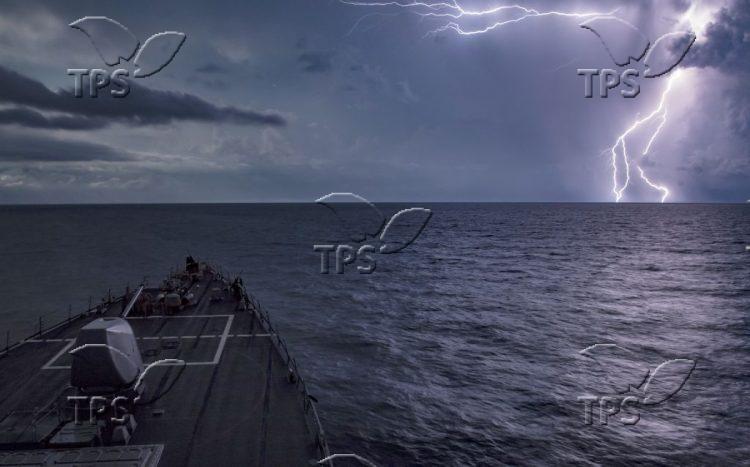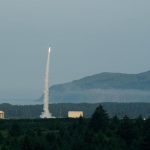Iran Looms Large as UN Security Council Condemns Houthis
Jerusalem, 11 January, 2024 (TPS) -- The United Nations Security Council didn’t name Iran explicitly, but the message was clear: Yemen’s Houthis wouldn’t be able to threaten global trade if not for the Islamic Republic’s support.
On Wednesday, the council voted 11-0, with four abstentions, in favor of a U.S.- and Japan-sponsored resolution condemning the Houthis’ repeated attacks on ships traversing the Red Sea and demanding an immediate halt to them, along with the release of the crew of Japanese-operated cargo ship taken hostage on Nov. 19. The ship is affiliated with an Israeli businessman.
The Houthis vowed in early December to target any Israel-bound ship in the Red Sea, regardless of its ownership. Since November 19, they have attacked or harassed 26 ships according to the US military’s Central Command (Centcom). This includes the hijacking of the MV Galaxy Leader in November. The cargo ship and its crew of 25 are being held hostage in Yemen’s port city of Hodeidah.
From bases along the Yemeni coast, the Iran-backed Houthi rebels have attacked and harassed ships in the Red Sea as they traverse the Bab el-Mandeb Straits, a narrow maritime chokepoint between the Arabian Peninsula and Africa. The majority of the world’s oil passes through the strait from the Indian Ocean towards the Suez Canal and the Mediterranean Sea.
The attacks have forced some major shipping companies to reroute around Africa, interrupting a crucial global trade route connecting Asia and the Middle East to Europe.
A U.S.-led coalition of countries has set up shop in the Red Sea to ward off further attacks. Undeterred by military action or threats of further consequences, the Houthis fired their largest-ever barrage of drones and missiles earlier on Wednesday, all of which were shot down by the U.S. and U.K. navies.
Last week, the United States and 12 other countries, including Bahrain, issued a statement warning that further attacks would necessitate a collective response.
“The Houthis will bear the responsibility of the consequences should they continue to threaten lives, the global economy and free flow of commerce in the region’s critical waterways,” the statement read.
A senior Biden administration official called the statement “a final warning.”
A Message to Tehran
While Wednesday’s resolution did not call out Iran specifically, it did note that all member states have a responsibility not to provide arms to the Houthis, in line with previous Security Council weapons embargoes. It also calls for “additional practical cooperation to prevent the Houthis from acquiring the material necessary to carry out further attacks.”
Washington’s U.N. ambassador, though, sent a message to Tehran, telling the council that it has a choice: “To continue providing or withhold its support for the Houthis, without which the Houthis would struggle to effectively track and strike vessels through the Red Sea and Gulf of Aden.”
Linda Thomas-Greenfield admonished Iran for supplying the Houthis with advanced weapons systems, including drones and missiles used in their aggression in the Red Sea.
Thomas-Greenfield told the council on Wednesday that “If the Houthi attacks continued, there will be consequences.”
Russia, China, Algeria and Mozambique abstained from Wednesday’s vote, which was delayed for several hours following the introduction of three Russian-drafted amendments, all of which were roundly rejected.
Two of the proposed amendments got just four “yes” votes and one got five among the council’s 15 members.
Russian Ambassador Vassily Nebenzia said Moscow was against the Houthi attacks, but called the resolution “politicized.”
One of the proposed amendments stated that “the escalation in Gaza is a main root cause of the current situation in the Red Sea,” ostensibly shifting blame to Israel. The Houthis have vowed to continue their attacks until Israel allows sufficient humanitarian aid into Gaza.
Thomas-Greenfield chided Russia for tabling the amendments “in bad faith at the last minute,” telling the council they were “divorced from reality” and would have the effect of legitimizing the Houthis’ actions.
“The Houthis are targeting a range of vessels, few of which are owned or operated by Israelis,” Thomas-Greenfield added, attempting to dispel the notion that Israel is an isolated target of the attacks. “What is at issue here is not any particular conflict, but rather the simple principle of upholding freedom of navigation and a waterway vital to the free flow of global commerce.”
There is a general concern that the Houthis’ attacks and an eventual harsh response to them could lead to an unraveling of a tentative ceasefire between the Houthis and a Saudi-led coalition that waged a devastating war on behalf of the internationally-recognized Yemini government, just as a more durable ceasefire seems within reach.
The resolution “encourages enhanced diplomatic efforts by all parties to that end, including continued support for dialogue and Yemen’s peace process under the U.N. auspices.







